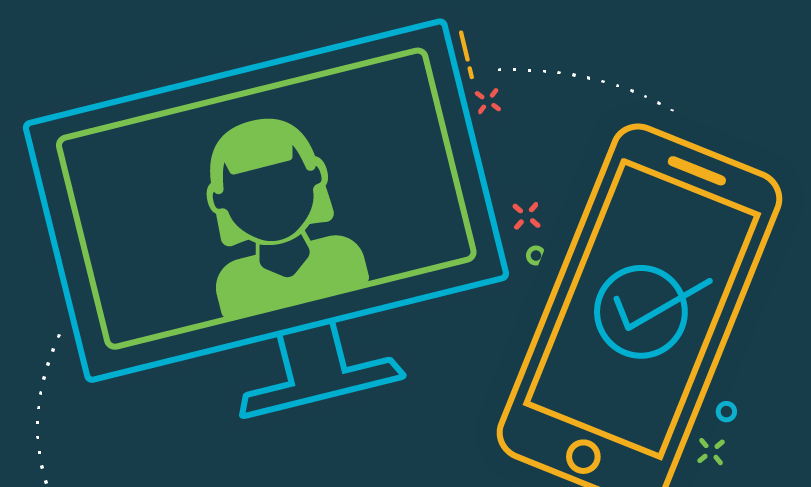
21+ Software Product Development Trends Leading the Charge in 2024
In the fast-paced world of technology, software product development continues to evolve, with innovative trends shaping the landscape in 2024. Keeping abreast of these trends is essential for businesses seeking a competitive edge and aiming to deliver cutting-edge solutions. Let’s explore over 20 key trends that are leading the charge in software product development this year.
1. Artificial Intelligence (AI) Integration
AI remains a pivotal trend, permeating various facets of software development. From advanced analytics to intelligent automation, integrating AI into software products enhances functionality, user experience, and decision-making capabilities.
2. Machine Learning (ML) Advancements
Continuing the AI wave, ML advancements drive personalized user experiences, predictive analytics, and automation. Developers leverage ML algorithms to empower software products with the ability to learn and adapt, improving over time.
3. Edge Computing for Enhanced Speed
Edge computing is gaining prominence, facilitating faster processing of data by reducing latency. This trend is particularly crucial for applications demanding real-time responsiveness, such as IoT devices and augmented reality (AR) applications.
4. Extended Reality (XR) Technologies
XR, encompassing virtual reality (VR) and augmented reality (AR), is reshaping user interactions. From immersive training simulations to interactive customer experiences, software products are integrating XR to create more engaging and dynamic environments.
5. Blockchain for Security and Transparency
Blockchain’s decentralized and secure nature continues to be harnessed in software development. Beyond cryptocurrencies, it ensures transparent transactions, data integrity, and heightened security in various applications, including supply chain management and financial software.
6. 5G Integration
As 5G networks proliferate, software products are leveraging high-speed connectivity to offer seamless experiences. From faster data transfers to improved performance in cloud-based applications, 5G integration is a game-changer.
7. Progressive Web Apps (PWAs)
PWAs combine the best of web and mobile applications, providing users with a fast and reliable experience. These apps, which can be accessed through browsers, are gaining traction due to their offline capabilities and improved user engagement.
8. Low-Code and No-Code Development Platforms
Empowering non-technical users to create applications, low-code and no-code platforms expedite the development process. This trend democratizes software development, enabling a broader range of individuals to contribute to creating innovative solutions.
9. Cybersecurity Emphasis
With the rise in cyber threats, cybersecurity is a non-negotiable aspect of software product development. Trends include advanced encryption methods, robust identity management, and proactive measures to safeguard against evolving cyber threats.
10. Quantum Computing Explorations
Although in its early stages, quantum computing is making waves in software development. Researchers and developers are exploring its potential to solve complex problems, especially in fields like cryptography, optimization, and artificial intelligence.
11. Microservices Architecture
Microservices architecture continues to dominate, enabling modular and scalable development. This approach facilitates quicker development cycles, easier maintenance, and enhanced resilience, making it a preferred choice for building robust software systems.
12. DevOps and Continuous Integration/Continuous Deployment (CI/CD)
DevOps practices, coupled with CI/CD pipelines, ensure streamlined development workflows. This trend emphasizes collaboration between development and operations teams, resulting in faster releases, improved quality, and increased efficiency.
13. Internet of Things (IoT) Integration
The proliferation of IoT devices has led to increased demand for software products that can seamlessly integrate and communicate with these devices. IoT integration facilitates data exchange, remote monitoring, and automation in various industries.
14. Cloud-Native Development
Cloud-native development is a natural evolution, allowing developers to build and deploy applications designed specifically for cloud environments. This trend enhances scalability, flexibility, and resource optimization in software products.
15. Voice User Interfaces (VUIs)
As voice recognition technology advances, VUIs are becoming more prevalent in software products. From virtual assistants to voice-controlled applications, this trend enhances accessibility and user convenience.
16. Explainable AI (XAI)
The transparency of AI decision-making is crucial. XAI focuses on making AI systems more understandable and interpretable, ensuring users and stakeholders can comprehend and trust the outcomes generated by AI algorithms.
17. Chatbots and Conversational Interfaces
Chatbots and conversational interfaces continue to evolve, offering more natural and intuitive interactions. From customer support to personal assistants, these applications enhance user engagement and provide real-time assistance.
18. Data Privacy and Compliance
Heightened awareness of data privacy has led to a stronger emphasis on compliance with regulations such as GDPR. Software products are incorporating robust data protection measures to ensure user privacy and regulatory adherence.
19. Human Augmentation Technologies
Human augmentation involves integrating technology to enhance human capabilities. From wearables to neurotechnology, software products are incorporating these technologies to improve productivity, health monitoring, and overall well-being.
20. Personalization and Customer-Centric Experiences
Customization is key in modern software products. Tailoring user experiences based on preferences and behaviors ensures a more engaging and satisfying interaction, fostering customer loyalty and retention.
21. Sustainability in Software Development
As environmental concerns grow, sustainability is gaining traction in software development. Companies are adopting eco-friendly practices, optimizing code for energy efficiency, and incorporating sustainable development methodologies.
Conclusion:
In conclusion, the world of software product development in 2024 is marked by a dynamic interplay of technological advancements. Companies that harness these trends strategically will not only stay competitive but also pioneer innovative solutions that shape the future of the industry. From AI integration to sustainability efforts, the diverse range of trends underscores the multifaceted nature of modern software development.
Zaigo Infotech is a leading force in software development, excelling in cutting-edge solutions. With a focus on AI, blockchain, and XR technologies, Zaigo transforms industries, offering personalized products. Their commitment to excellence, adaptability, and client satisfaction sets them apart, making Zaigo a go-to partner for those seeking innovative and tailor-made software solutions. Elevate your digital journey with Zaigo Infotech, where innovation meets impact.




